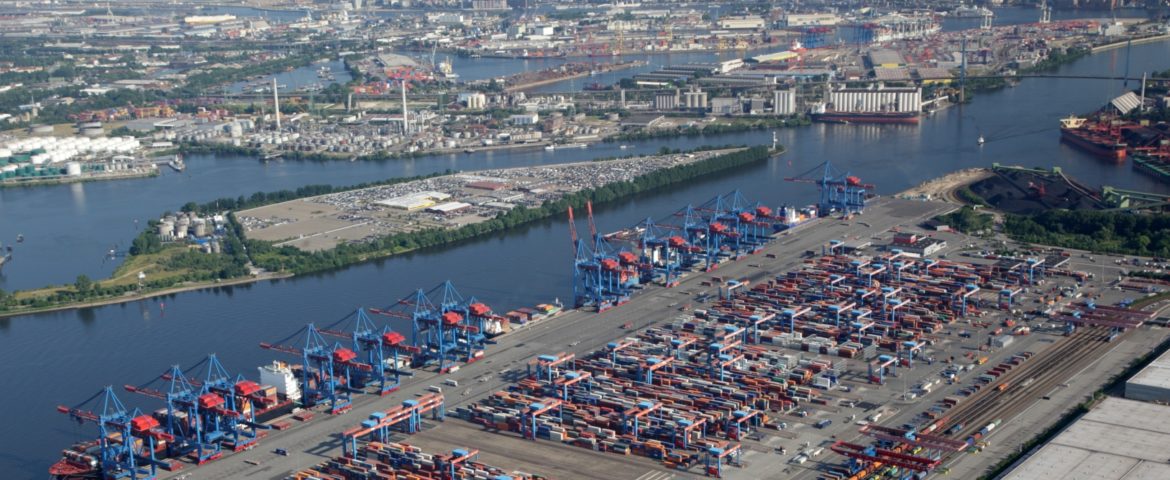Carriers announcements that they have acquired stakes in container terminal operations in North Europe, bring to the attention a port study that clearly demonstrates in a quantitative manner that ports have a much higher chance of receiving vessel calls of an alliance when one or more alliance members are having a terminal stake in the port.
Big news from German ports in the last weeks. The first changes were noted in Hamburg as Cosco has undertaken a strategic investment to receive a 35% minority share in the Tollerort terminal operated by HHLA. Except for German carrier Hapag-Lloyd no other carrier had ever been able to secure a shareholding in a local large container terminal.
In other big hub ports in Northern Europe, such as Antwerp and Rotterdam, carriers have entered the container terminal market already decades ago, mostly through direct minority stakes or via associated terminal operating companies such as TiL, APM T, or Terminal Link.
A week after the investment of Cosco in the Tollerort terminal in Hamburg, Hapag-Lloyd announced that it has acquired a 30% stake in Container Terminal Wilhelmshaven. Terminal operator Eurogate continues to hold the remaining 70%. This implies that Hapag Lloyd takes over APM T’s stake of 30%.
MSC and APM T are also involved in terminals in Bremerhaven. So, at least one member of each alliance (2M, Ocean Alliance, and THE alliance) now has direct or indirect involvement in a German container terminal.
It will be interesting to observe how these recent developments will affect the port of call choices of carriers.
In a 2017 paper published in Journal of Transport Geography. PortEconomics members Theo Nottebbom, Francesco Parola, Giovanni Satta, and Thanos Pallis, clearly demonstrate in a quantitative manner that ports have a much higher chance of receiving vessel calls of an alliance when one or more alliance members are having a terminal stake in the port.
You might read the authors’ version of the study here:
Notteboom T., Parola, F., Satta G. and Pallis, A.A. (2017). The relationship between port choice and terminal involvement of alliance members in container shipping, Journal of Transport Geography, 64C, 158-173.2017-JTG-Notteboom-Parola-Satta-Pallis












